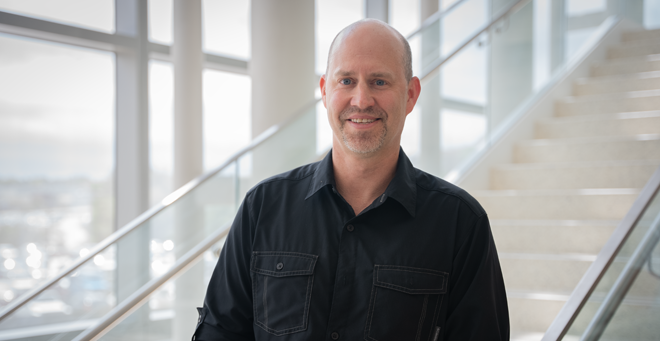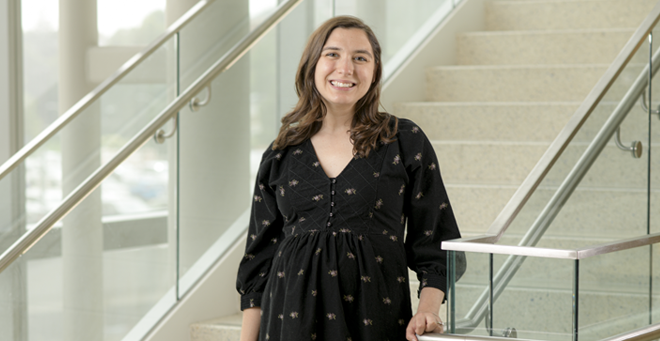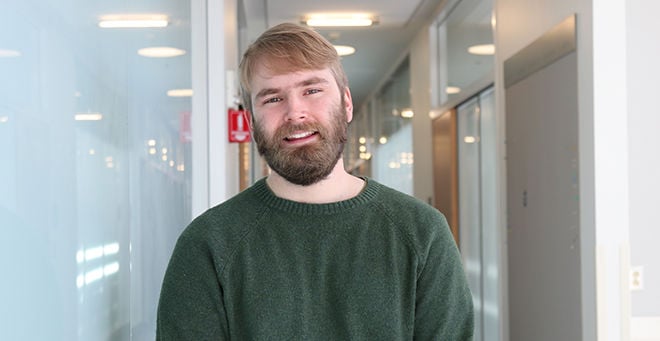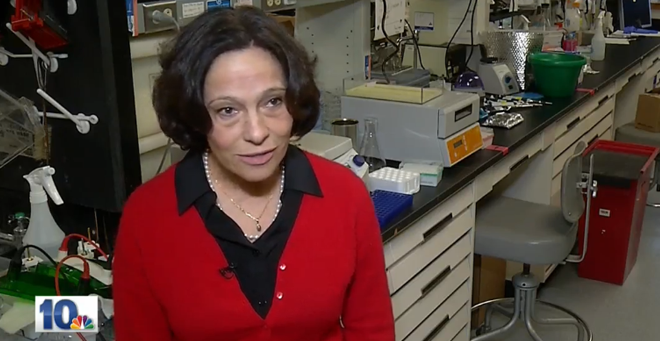
A new study by David Guertin, PhD’02, professor of molecular medicine, examines a type of body fat called brown adipose tissue, or brown fat, and how it burns calories, stores energy and keeps the body warm during cold conditions.
Published in Nature Metabolism and co-authored by Cholsoon Jang, PhD, assistant professor of biological chemistry at University of California Irvine, the paper describes using a technique called arteriovenous metabolomics to show that brown fat uses glucose and lactate as its major fuels for thermogenesis, the process of heat production in animals. Dr. Guertin and colleagues used arteriovenous metabolomics in mice in cold-adapted conditions to determine the energy usage of brown fat and skeletal muscle during thermogenesis.
“The evolutionary function of brown fat is to generate heat to defend the body temperature in a cold environment,” Guertin said. “Brown fat must consume a lot of nutrients from circulation to provide the energy to do this. The idea is if you can turn brown fat on in an adult who’s suffering from metabolic disease, like obesity, you can trigger this tissue to take up some of the excess nutrients that are causing the disease and metabolize and burn them off as heat.”
Guertin describes brown fat as a “nutrient sink.” When it is stimulated, it can extract nutrients from the blood and metabolize the nutrients to generate heat. The study collected blood samples to calculate the difference in metabolite levels in the arterial and venous blood leading to and from the tissue, and measured quantitative values of how much of the individual nutrients were being consumed and what the tissue puts back into the blood. They also used a special technique called stable isotope tracing to follow how some of the metabolites are being used within the brown adipose tissue itself.
“The field only learned that brown fat is present in adult humans about 15 years ago, and therapeutically activating it would be an elegant mechanism to defend against obesity. Imagine, you turn on these cells that just dissipate excess calories as heat,” Guertin said. “One of the goals of our research has been trying to better understand the basic metabolism of this tissue to determine which nutrients it is consuming and what it’s doing with the fuel it consumes.”
The thermogenesis study discovered more than 100 metabolites that are either consumed by brown fat or released by muscle that were previously unknown. According to Guertin, the new metabolites could potentially be candidates for activators of the tissue, or signaling metabolites that communicate with other tissues.
The study also drew parallels between cancer metabolism and brown fat metabolism.
“Brown fat breaks some of the rules of biochemistry. Tumors and brown fat use a lot of glucose and what we’ve discovered since starting this work is that brown fat isn’t just using glucose to make heat; it’s using glucose to support many other pathways that support the health of the tissue, like how some cancer cells use glucose to support the growth of the tumor,” Guertin said. “We’re really fascinated by how different signals control metabolism, and how metabolism itself can produce signals that regulate cell functions, and figuring what this means in the context of disease.”
Guertin earned his PhD from UMass Chan in 2002 and joined the medical school faculty in 2009 after completing postdoctoral work at the Whitehead Institute. He co-founded the UMass Metabolic Network with Dohoon Kim, PhD, associate professor of molecular, cell & cancer biology.
“I’ve been so fortunate to have an amazing lab team working on these questions, especially the co-first authors of this study, John Haley and SuMyung Jung, PhD, who led the research here at UMass Chan,” Guertin said. Haley is a PhD candidate in the Guertin Lab and Dr. Jung left in 2022 to become assistant professor at Sungkyunkwan University in South Korea.
Additional UMass Chan authors on the new study include Timothy Fitzgibbons, MD, PhD, associate professor of medicine; Jessica Spinelli, PhD, assistant professor of molecular medicine; Chinmay Trivedi, MD, PhD, professor of medicine; research associate Huawei Li; PhD candidate Ekaterina Korobkina; and Guertin lab members Qingbo Chen and Shelagh Fluharty.


